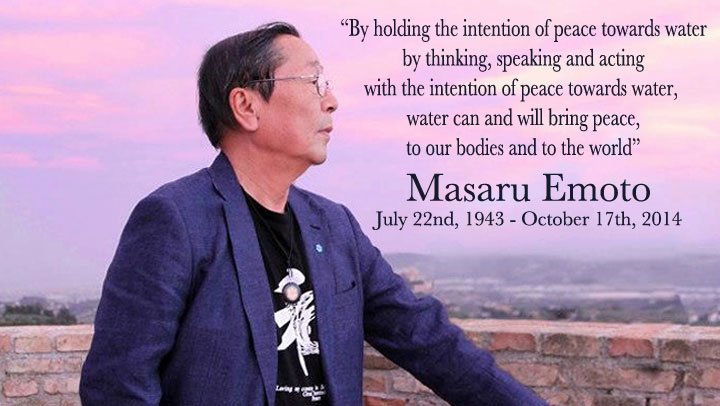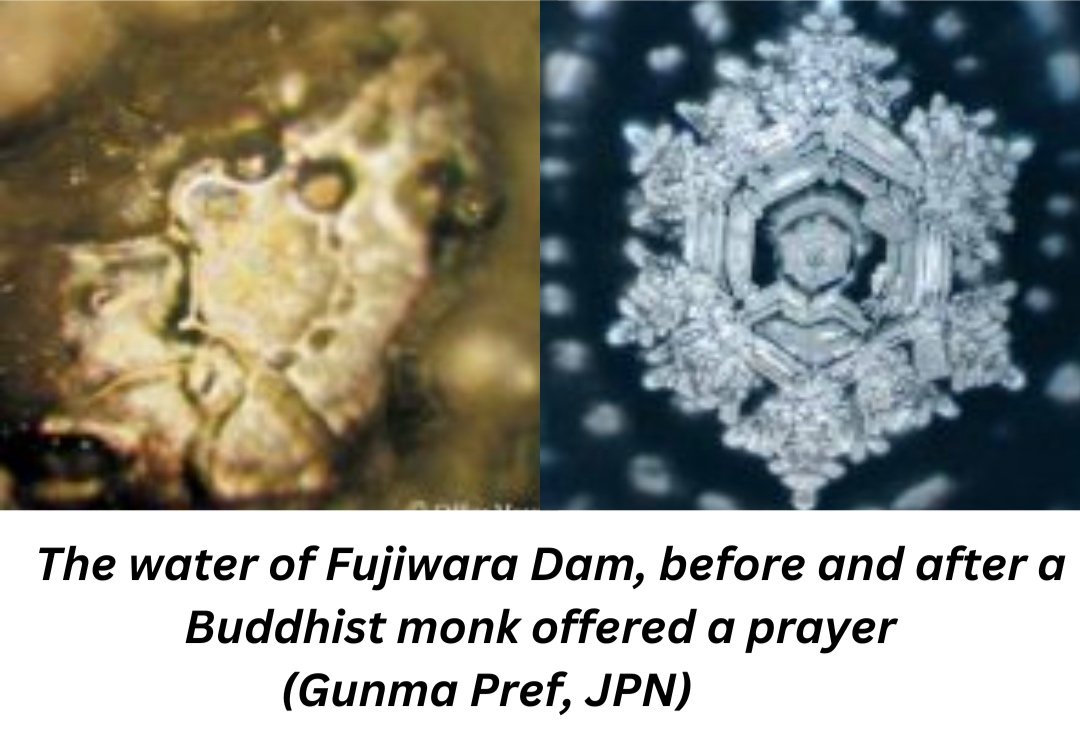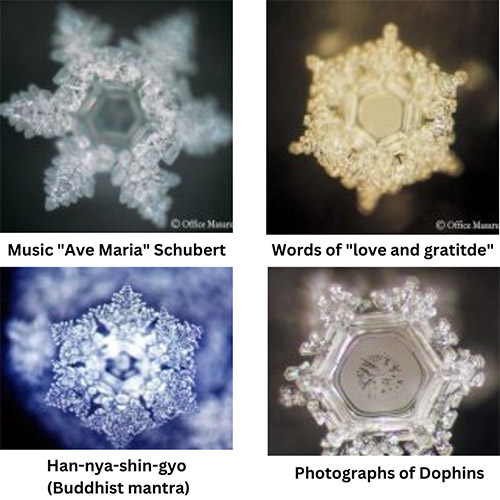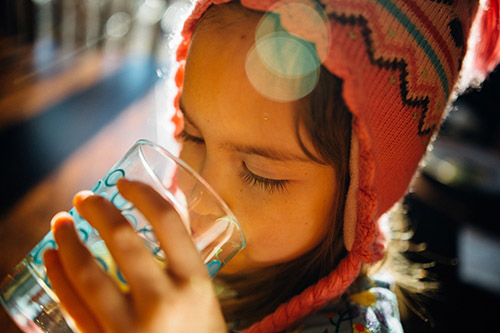
– Composed by Duane Steffens, and Edited Glenn Nangaku Leisching
Have you ever felt like the universe conspires to make your dreams come true? Or wondered why certain events seem to align perfectly in your life? This phenomenon is often attributed to the Law of Attraction and the Law of Karma. In this article, we’ll delve into the intricacies of these two powerful Laws and explore how they oppose and work together to shape our reality, as explored through the teachings at Born as the Earth Zen Academy (BEZA) in Cape Town.
Introduction
Dr. Masaru Emoto’s Ideas on How Emotion Influences Water
Water, the elixir of life, has been revered for its purity and essential role in sustaining all living beings on our planet. Dr. Masaru Emoto, a Japanese researcher, introduced a fascinating perspective on water’s properties by studying the influence of human emotions on its molecular structure. His pioneering work in the field of water crystal experiments has sparked both wonder and controversy, captivating the minds of many. In this article, we will delve into Dr. Emoto’s ideas, exploring the impact of emotions on water and the implications it holds for our daily lives.


The Water Crystal Experiments
At BEZA, we explore Dr. Emoto’s water crystal experiments, which involved subjecting water samples to various emotions, thoughts, and intentions. By exposing water to different stimuli, he aimed to observe whether these factors would affect the formation of water crystals. Crystalline structures were formed by freezing water droplets and analyzing them under a microscope. These experiments provided a unique lens to investigate water’s response to human influence.
The Impact of Positive Emotions on Water
Dr. Emoto’s experiments revealed that positive emotions, such as love, gratitude, and joy, had a profound effect on the structure of water crystals. When water samples were exposed to these emotions, they formed intricate and harmonious crystal formations. These results suggest that positive emotions may have the potential to enhance water’s vitality and promote balance.
Imagine the implications of infusing positivity into the water we consume daily. If our emotions can influence water, and our bodies consist mostly of water, it raises the question of how positive emotions may impact our overall well-being. Perhaps, by cultivating love, gratitude, and joy within ourselves, we can positively influence our own molecular structure and promote a healthier state of being.
The Influence of Negative Emotions on Water
Conversely, Dr. Emoto’s experiments also explored the impact of negative emotions on water crystals. When water samples were exposed to emotions like anger, hate, and fear, the resulting crystals appeared distorted and chaotic. These findings suggest that negative emotions may disrupt the natural harmony of water molecules, potentially affecting their ability to support life’s essential processes.
Consider the metaphorical implications of these findings. If negative emotions can cause such disarray in water crystals, which are fundamental to life, it raises awareness about the potential impact of negativity on our own well-being. Recognizing the detrimental effects of anger, hate, and fear allows us to cultivate a more positive emotional landscape, not just for our own benefit but also for the broader interconnectedness of life.
Daily Practices for Integration
The Power of Intention and Thoughts
Dr. Emoto’s work emphasized the power of intention and thoughts in influencing water. He believed that our intentions and the thoughts we direct towards water can directly shape its response. By consciously infusing positive intentions and thoughts into water, we have the potential to affect its molecular structure positively.
This concept parallels the ancient practice of blessings. Across cultures and religions, water has been blessed or prayed upon, imbuing it with positive energy. Dr. Emoto’s experiments offer a scientific lens through which we can understand and appreciate the intention behind these practices. By acknowledging the power of our thoughts and intentions, we can actively contribute to the well-being of the water we interact with daily.

Applying Dr. Emoto’s Ideas in Daily Life
Dr. Emoto’s ideas hold practical applications for our daily lives. We can begin by being mindful of the emotions we carry and the thoughts we project onto the water we consume. To infuse positivity into our drinking water, we can offer blessings, express gratitude, or visualize vibrant and healthy water molecules. Small acts like these have the potential to create a ripple effect, spreading positive energy not only within ourselves but also through the interconnected web of life.
Moreover, considering the impact of emotions on water encourages us to approach interactions and relationships with greater awareness. By consciously cultivating positive emotions, we contribute to a more harmonious and compassionate environment, benefiting not only ourselves but also the collective consciousness of humanity.
Scientific Perspectives and Criticisms
Dr. Emoto’s ideas have received both admiration and skepticism within the scientific community. While his experiments sparked intrigue and inspired further research, some critics questioned the methodology and reproducibility of his findings. It is essential to acknowledge that science demands rigorous experimentation and peer-reviewed studies to establish conclusive evidence.
Nevertheless, the discussions surrounding Dr. Emoto’s work have stimulated broader conversations about the nature of water and its potential for responsiveness to external influences. Rather than dismissing his ideas entirely, these debates encourage curiosity and open-mindedness, urging us to explore the uncharted territories of water’s properties.
The Relevance of Dr. Emoto’s Ideas Today
Despite the criticisms, Dr. Emoto’s ideas continue to resonate with many individuals and have influenced various holistic healing practices. Water, as a powerful medium, holds the potential to mirror and respond to our intentions and emotions. The continued interest and research in water’s properties highlight the underlying human fascination with the interconnectedness of all things.
By acknowledging the influence of emotions on water, we gain a deeper appreciation for the intricate relationship between ourselves and the world around us. Dr. Emoto’s work invites us to embrace a more conscious and intentional way of living, where our thoughts, emotions, and actions can have a profound impact not only on our personal well-being but also on the vibrant tapestry of life itself.

Conclusion
Dr. Masaru Emoto’s groundbreaking research on the influence of emotions on water has sparked a paradigm shift in our understanding of this essential element of life. Through his water crystal experiments, he demonstrated the potential impact of both positive and negative emotions on the molecular structure of water. These findings encourage us to recognize the power we hold to shape our own well-being and the world around us.
As we navigate our daily lives, let us remember the significance of water and the role our emotions play in shaping its response. By infusing positivity into the water we consume and cultivating a conscious emotional landscape, we can contribute to a more harmonious and interconnected existence.
FAQs
Can the emotions we feel really influence the molecular structure of water?
Yes, Dr. Masaru Emoto’s water crystal experiments suggest that emotions can influence the molecular structure of water.
How can I infuse positivity into the water I consume daily?
You can infuse positivity into your water by offering blessings, expressing gratitude, or visualizing vibrant and healthy water molecules.
Are there any scientific criticisms of Dr. Emoto’s work?
Yes, Dr. Emoto’s work has faced criticism regarding methodology and reproducibility. The scientific community encourages further research and peer-reviewed studies.
What are some practical applications of Dr. Emoto’s ideas in daily life?
Practical applications include being mindful of your emotions and thoughts, offering blessings to water, and cultivating positive emotions in interactions and relationships.
How does understanding the influence of emotions on water benefit us?
Understanding this influence allows us to be more intentional with our emotions and thoughts, potentially promoting personal well-being and contributing to a more harmonious environment.
Daily Open Meditation Sessions (OMS)
Monday – Friday: 07:00AM – 08:00AM
* Free open meditation space
* Sessions happen live online via Zoom
* Regular supportive space to practice meditation within community
* No training required
* Beginners and advanced meditators welcome
* Basic temple *protocols apply

Zazen | Elemental Meditation Training (ZMT)
*Monthly Online Training
19:00PM – 21:00PM
Tuesdays 7-9pm (SAST)
Zen Meditation (Zazen) is the ultimate sustainability and resiliency practice. To meditate is completely natural. It is through meditation that we begin to train our mind to become less erratic and more focused. During the unfolding stages you will become increasingly flexible, determined, and clear in body and mind. Zazen (similar in nature to Vipassana) is the meditation practice taught by Shakyamuni Buddha. 'Zen' is the Japanese word for meditation. Zen Buddhism focusses on the practice of meditation to alleviate pain and suffering and is the most direct route to enlightenment. Together we learn how to practice zen on the cushion and off the cushion (in every aspect of our daily lives).
Elemental Meditation applies similar Zen Meditation techniques except where you work with the breath in Zazen - in Elemental Meditation you learn how to meditate with one of the 5 Gateway Elements (Fire, Water, Earth, Nature, Stone).
Our instructors and teachings offer you personalized guidance on a step-by-step evolutionary path to self-discovery and inner harmony. Whether you are a beginner or an experienced practitioner, engage this easily accessible opportunity and awaken to your True Nature and find joy and solace in the serene landscapes of your physical, mental, emotional and spiritual body.
Beginners and advanced practitioners welcome.
Meditation training is by DANA subscription.
Why Join?
I want to deepen my practice through expert guidance
I want to build consistency through daily live meditations
I want to cultivate harmony between mind, body, and spirit
I want to connect with a supportive meditation community
Zazen | Elemental Meditation (ZMT)
R300 per month (Africans)
€45 (R900) per month (Internationals)
Live Monthly Online Meditation Training (2-hour session)
Live Meditation Sessions within community (Monday–Friday | 7-8am SAST)
Private Guidance by Ekan Nangaku (Wednesday mornings)
Compassionate WATER Module
Way of Balance
2026

Learn harmonising techniques - how to sense and relate to others. Access your emotional intelligence. Navigate the complexities of human and non-human relationships. Acquire the skills of meditation; compassion; resonance; resolving dilemma; and shadow work.
